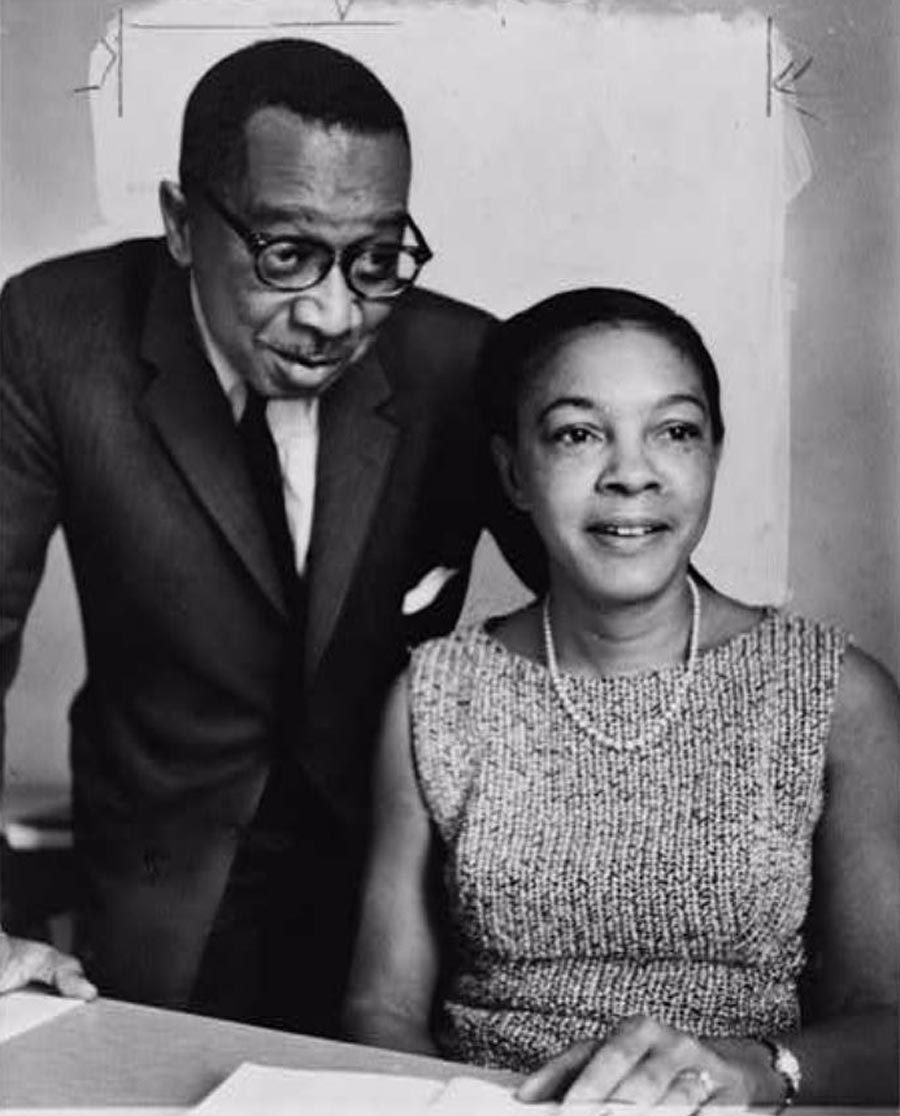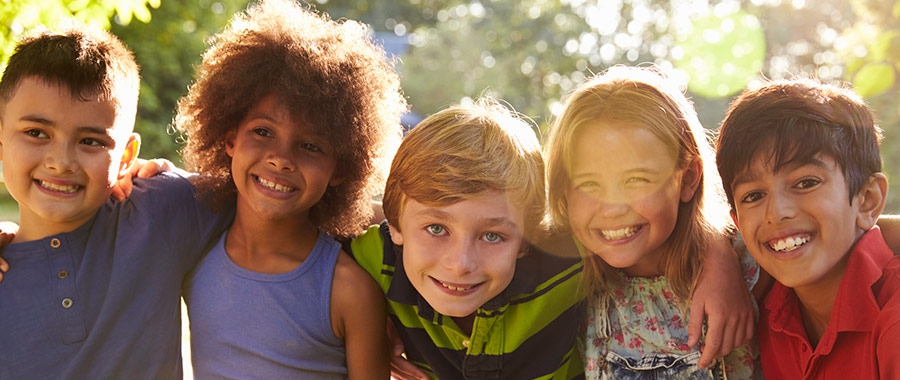The views expressed in our content reflect individual perspectives and do not represent the authoritative views of the Baha'i Faith.
With racism resurgent worldwide, the eyes of the hopeful turn naturally to the youngest generation.
“Surely,” we white people tell ourselves, “these small children are untouched by racial prejudice. If only we shelter them from bigoted influences, we can finally deal a decisive blow to this centuries-old scandal.” The problem, for reasons that are very difficult to untangle, is that kids seem to be picking up racial bias very early in life.

Kenneth and Mamie Clark
In the 1940s, two psychologists, Kenneth Bancroft Clark and his wife Mamie Phipps Clark, developed a test to examine the effects of racial segregation on children. They’d sit children in front of two dolls, one white, the other black, and ask them simple questions like which one is the good doll, or the ugly doll, or the mean doll. Their experiments showed an overwhelming tendency to attribute positive qualities to the white doll and negative qualities to the black one. This was even the case among black children.
Because their experiment is so simple to set up, it’s been duplicated innumerable times since then. You can find many videos of these experiments on YouTube, some of them from countries without large populations of black people. I assure you that watching them is an effective way to ruin a perfectly nice evening. In recent decades, black children have gradually given more mixed responses. The responses of white children, however, appear to have changed very little.
Racial bias is like a virus that never entirely leaves the body. It gets in without us knowing it, and it’s very hard if not impossible to completely remove. Once we acknowledge that children today are—by and large—already infected with racial bias, then our attention logically turns to three implications:
- Racial inequality will probably be with us for a very long time, at least as long as those who are children today remain in positions of influence. Basically, we’ll be working on this problem in one form or another for the rest of our lives.
- We need to prepare ourselves for a decades-long effort to champion racial justice. We’re not going to be able to beat this thing in a few years. We need to pursue this with a level of commitment and devotion typical to religion.
- This all comes down to one principle: justice.
As I hold these thoughts close, I keep in mind the Baha’i teachings about progressive, permanent movements for justice:
In this world we judge a cause or movement by its progress and development. Some movements appear, manifest a brief period of activity, then discontinue. Others show forth a greater measure of growth and strength, but before attaining mature development, weaken, disintegrate and are lost in oblivion. Neither of these mentioned are progressive and permanent.
There is still another kind of movement or cause which from a very small, inconspicuous beginning goes forward with sure and steady progress, gradually broadening and widening until it has assumed universal dimensions. – Abdu’l-Baha, The Promulgation of Universal Peace, pp. 43-44.
The key, according to Abdu’l-Baha, is that a movement or cause that seeks true justice be based on principles inspired by divine guidance. The shocking results of the doll tests indicate that the divine teaching of justice and fair-mindedness is essential for the task at hand.
In the writings of Baha’u’llah, the prophet-founder of the Baha’i Faith, I’ve noticed that he associates the attribute of justice with acts of decision-making and judgment. He seems to speak less often of justice as an objective condition of society, instead relating the concept of justice to the manner in which individuals spiritually come to terms with their power, influence, and authority in relation to other people. Take these two passages, for example:
They that are just and fair-minded in their judgment occupy a sublime station and hold an exalted rank. The light of piety and uprightness shineth resplendent from these souls. We earnestly hope that the peoples and countries of the world may not be deprived of the splendors of these two luminaries. – Baha’u’llah, Tablets of Baha’u’llah, p. 37.
It behooveth every ruler to weigh his own being every day in the balance of equity and justice and then to judge between men and counsel them to do that which would direct their steps unto the path of wisdom and understanding. – Ibid., pp. 166-167.
The third implication of racial bias being with us for decades to come relates to the manner in which we practice justice. I find it fruitful that Baha’u’llah connects the practice of justice to acts of decision-making and judgement. If something requires a decision, then it is something that requires conscious deliberation, not just a spontaneous reaction. That means the agent of justice must consider more than one course of action and then settle on a definite choice. One of the striking features of the doll experiments is the thoughtlessness of the interactions. The children aren’t given any complex factors to consider, because the experiment is designed to draw out the immediate automatic reactions of the test subjects. After all, how can a doll possibly be “mean” or “good?” The practice of justice requires us to balance out such spontaneous and often subconscious feelings with rational consideration and sound knowledge.
Unfortunately, we’re not in a place where we can expect the rising generation to be spontaneously unbiased in matters of race. Anyone who thought as a young child that black skin is worse than white skin will need to spend the rest of their life consciously holding that emotional, spiritual and intellectual infection in check. Anyone with racist tendencies bubbling up from below must consistently counteract them in their decisions and actions with the divine qualities of justice and fair-mindedness. The Baha’i teachings say that can best happen in the atmosphere of love and unity that only a truly diverse spiritual community can provide.
You May Also Like
Comments

















Gratefully,
Alan